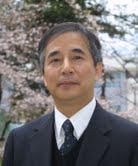Tutorial A(Data Mining)
Instructor: Prof. Zita Vale, Polytechnic of Porto, Porto, Portugal
Tutorial Title: Data Mining Applications
in Energy and Power Systems
Abstract
Data mining techniques are used to discover useful information in large amounts of data. Artificial intelligenc techniques as well as statistical tools are used to identify trends, patterns, and relationships that are not obvious and that cannot be easily determined otherwise. The identification of hidden rules in the available data enables to obtain additional information as a part of a knowledge discovery process.
Data mining techniques are used in business intelligence, namely for obtaining knowledge about customers and to enable more effective business strategies. The present operation of energy and power systems, strongly based on computer processing, produces huge amounts of data, making the use of data mining approaches increasingly important. The obtained knowledge is crucial for the effective operation of power systems and for supporting electricity markets players decisions, namely due to the increasing decision making decentralization trend.
This tutorial will address the basic concepts of data mining, the main used techniques and illustrate the importance of data mining application in energy and power systems. The addressed examples will include cases concerning electricity markets, energy management, and electricity consumers profiling.
Biography:
Zita Vale received the BSC in 1986, the PhD in 1993 and Agregação in 2003, from the University of Porto. She has been working in the application of Artificial Intelligence techniques to Power Systems since 1988. She has been involved in several projects involving the development and use of Knowledge-Based systems, Multi-Agent systems, Genetic Algorithms, Neural networks, Particle Swarm Intelligence, Constraint Logic Programming and Data Mining. The main application fields of her work are smart grids, electricity markets, and distributed energy resources scheduling.
She is Professor of Power Systems in the School of
Engineering of the Polytechnic of Porto (ISEP/IPP). She is the Director of
GECAD - Knowledge Engineering and Decision-Support Research Center, a research
center with more than one hundred researchers, settled at ISEP/IPP. She is a
coordinator researcher of GECAD where she coordinates the Power and Energy
Systems group.

Tutorial B(Metaheuristics)
Instructor: Prof. Dr.-Ing. habil. István Erlich, University of Duisburg-Essen, Germany
Tutorial Title: Mean-Variance Mapping Optimization –Background and Application to Power Systems
Abstract
The mean-variance mapping optimization (MVMO) is a recent addition to the
emerging field of meta-heuristic optimization methods. Its unique feature
is a special mapping function used for mutating the offspring based on
the mean and variance of the n-best solutions attained so far and saved
in a continually-updating archive.
The tutorial will
provide an overview about the fundamentals of the MVMO and its extensions from
the classical
single-particle implementation to the swarm
approach using multi-parent crossover as well as
to the recently developed hybrid (memetic) version with embedded local search strategy.
Unlike
other swarm based optimization techniques, MVMO does not strictly require
several particles to proceed. But by using more than one particle the global
searching capability required to solve complex problems can be extended
considerably. The hybrid version is activated by setting only one input
parameter, which is the probability for local search. Depending on the nature
of the problem to be solved, the local search strategy can lead to a very fast
convergence behavior.
The algorithm and the evolution of MVMO will be demonstrated first graphically by using classical benchmark functions. Then, several examples in different power system application fields are used to show the performance and capability of MVMO in comparison with other established meta-heuristic optimization methods.
Biography:
István Erlich received his Dipl.-Ing. degree in electrical engineering from the University of Dresden/Germany in 1976 and his PhD in 1983 from the same university. After his studies, he worked in Hungary, Berlinand Dresden (Germany) in different fields of power engineering. Since 1998, he is Professor and head of the Instituteof Electrical Power Systems of the University Duisburg‑Essen/Germany. His major scientific interest is focused on power system stability and control, modeling and simulation of power system dynamics including intelligent system applications, smart grids and renewable energy sources. He is a member of VDE and senior member of IEEE. He is the chair of the IEEE PES German Chapter and the IFAC Technical Committee 6.3 on Power and Energy Systems.

Tutorial C(Multi-Agent Systems)
Instructor: Prof. Takeshi Nagta, Hiroshima Institute of Technology, Hiroshima, Japan
Tutorial Title: Multi-agent Approach to Power System Applications
Abstract
Multi-agent systems are seen from the scientific and industrial prospective as one of the most important trends for the next power systems. Recently, agents have become the focus of intense research in fields such as computer science and artificial intelligence. Intelligent agents are a new paradigm for developing software applications. An agent is defined as one that interacts between external environments, cooperates with other agents and processes to solve problems autonomously.
In the power systems, multi-agent has been studied in a variety of applications, such as market simulation, restoration, unit commitment, substation automation, monitoring, smart grid operation, diagnosis, and voltage control.
This tutorial will firstly explain the basic concept of software agent and then demonstrate applications for power system restoration, voltage and reactive power control and micro-grid operation.
Takeshi
Biography:
Takeshi Nagata received M.S and Ph.D. degrees from Hiroshima University
in 1980 and 1995 respectively. Following his industrial experience at TOSHIBA
Corporation and academic experience, he became a Professor of Hiroshima
Institute of Technology. He was Dean of the Faculty (2006-2009). Dr. Nagata
is a member of IEEE, IEEJ, and IPC (Information Processing Society of Japan).
